Supporting Multilingual Learners in Community Colleges: Lessons From City Colleges of Chicago
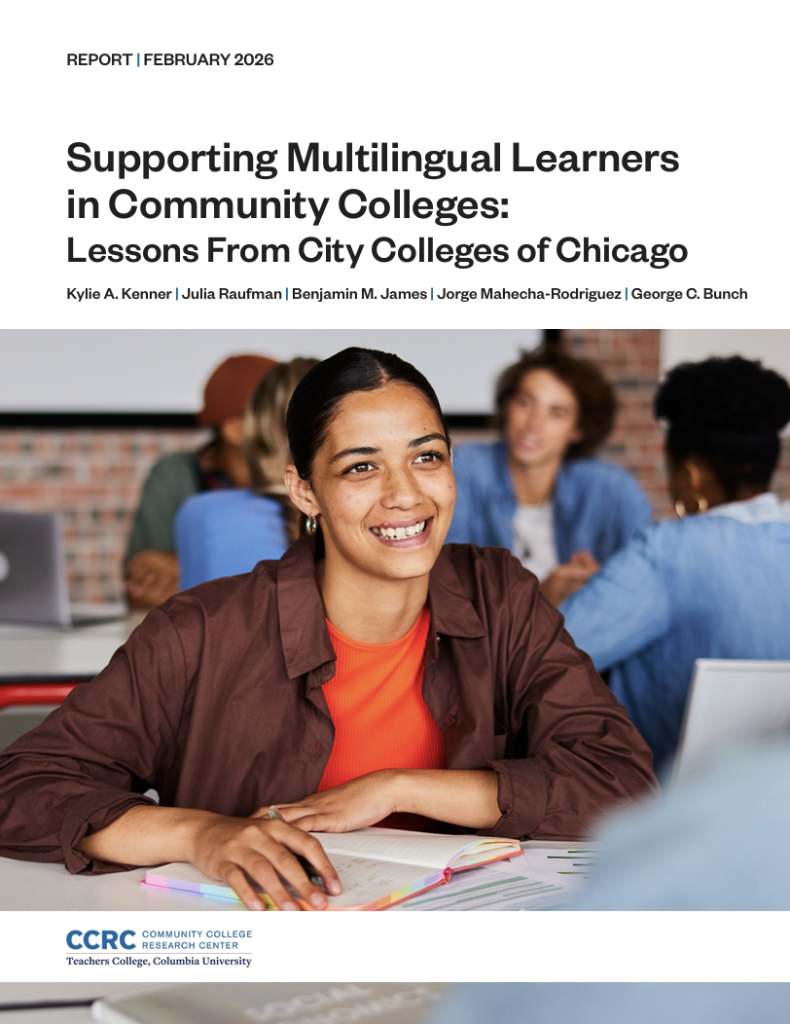
Based on findings from a study examining the policies and practices impacting multilingual learners (MLs) at City Colleges of Chicago, this report provides insights for community college practitioners and policymakers on the goals and backgrounds of MLs, their experiences, and promising approaches to serving this population.
Adult Education ESL in the United States: A Systematic Literature Review
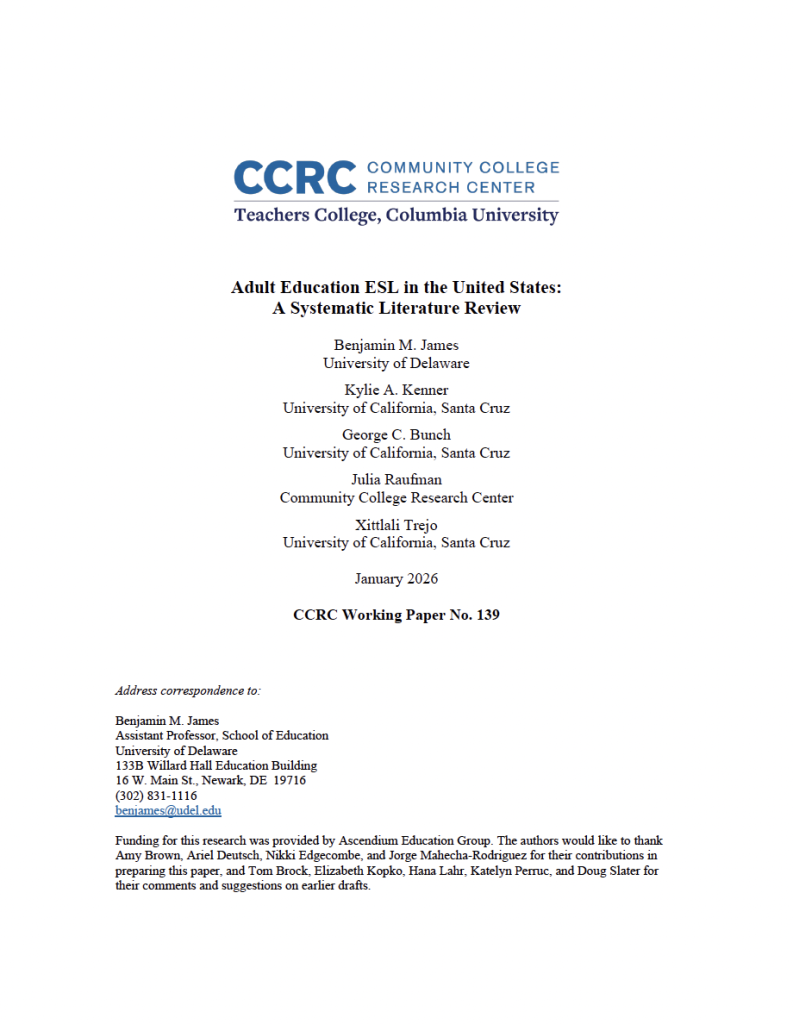
Drawing on 107 sources, this paper discusses the backgrounds and experiences of students and instructors in adult education ESL programs as well as institutional practices, curriculum and pedagogy, and policy contexts relevant to the programs.
Transitioning From ESL to Corequisite English Courses at CUNY
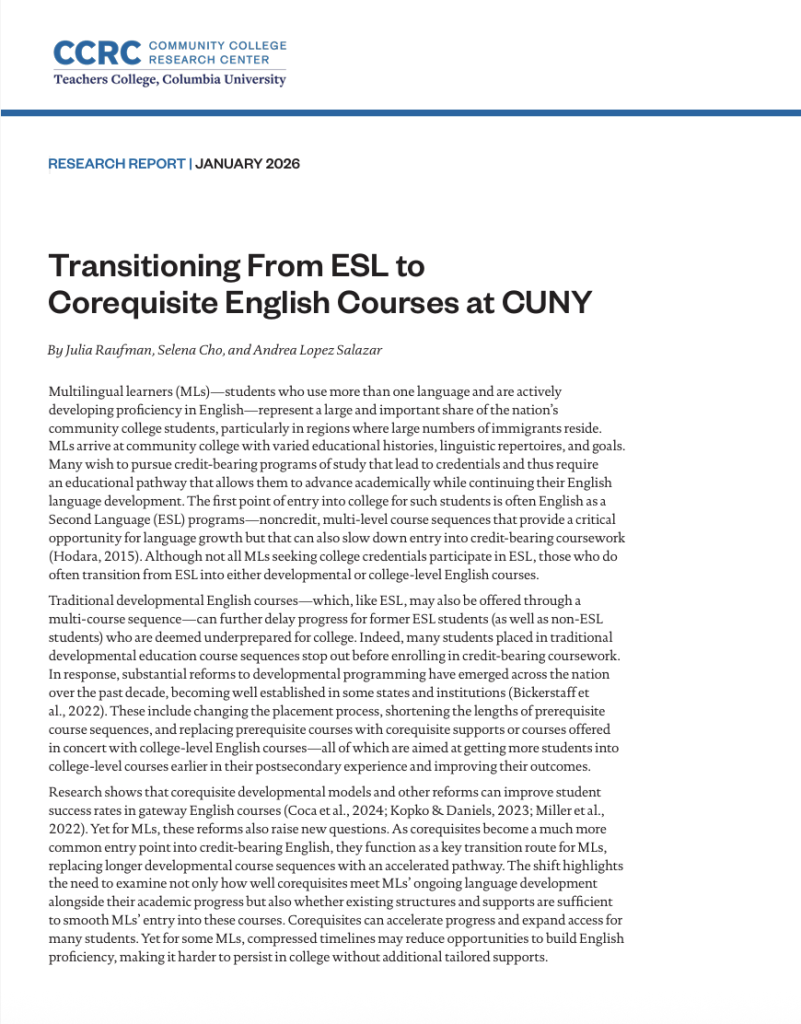
This report describes how placement processes, departmental structures, ESL course sequences, and instructional models at five CUNY community colleges shape learners’ access to and experiences in corequisite or standalone college-level English courses.
Financing Community Colleges: Current Landscape and Future Directions
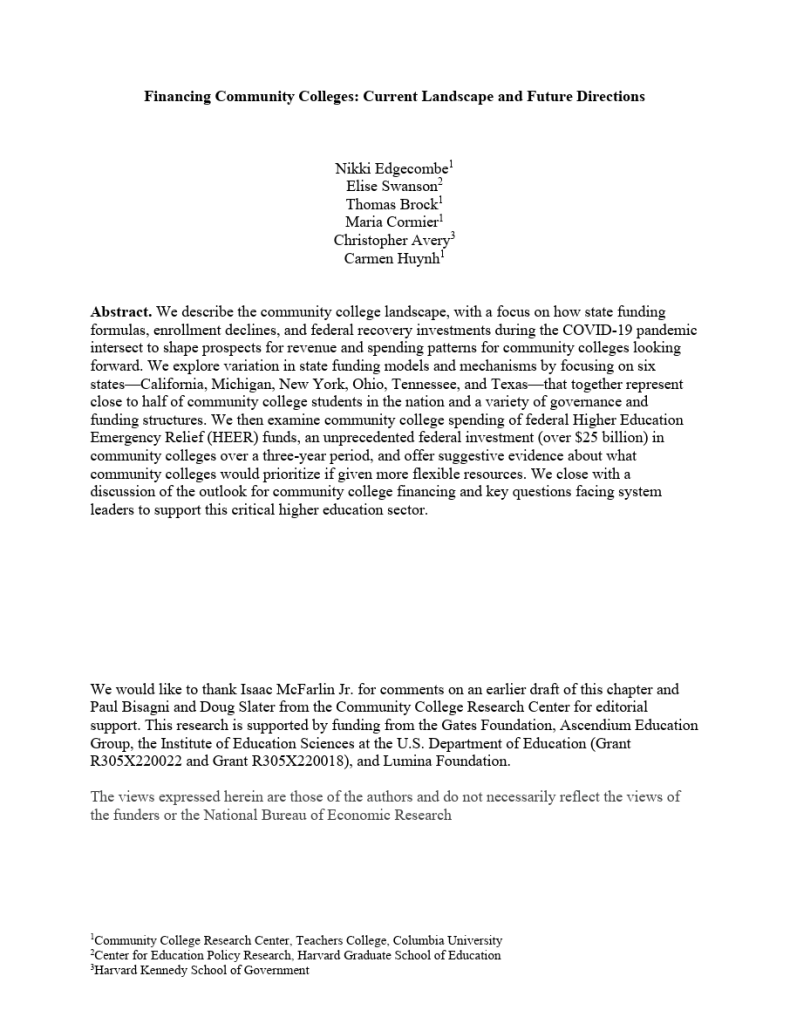
This book chapter describes how state funding formulas, enrollment declines, and federal recovery investments during the COVID-19 pandemic intersect to shape future prospects for community college revenues and spending patterns.
Unlocking Opportunity: Eight Strategies for Community Colleges to Improve Post-Completion Outcomes
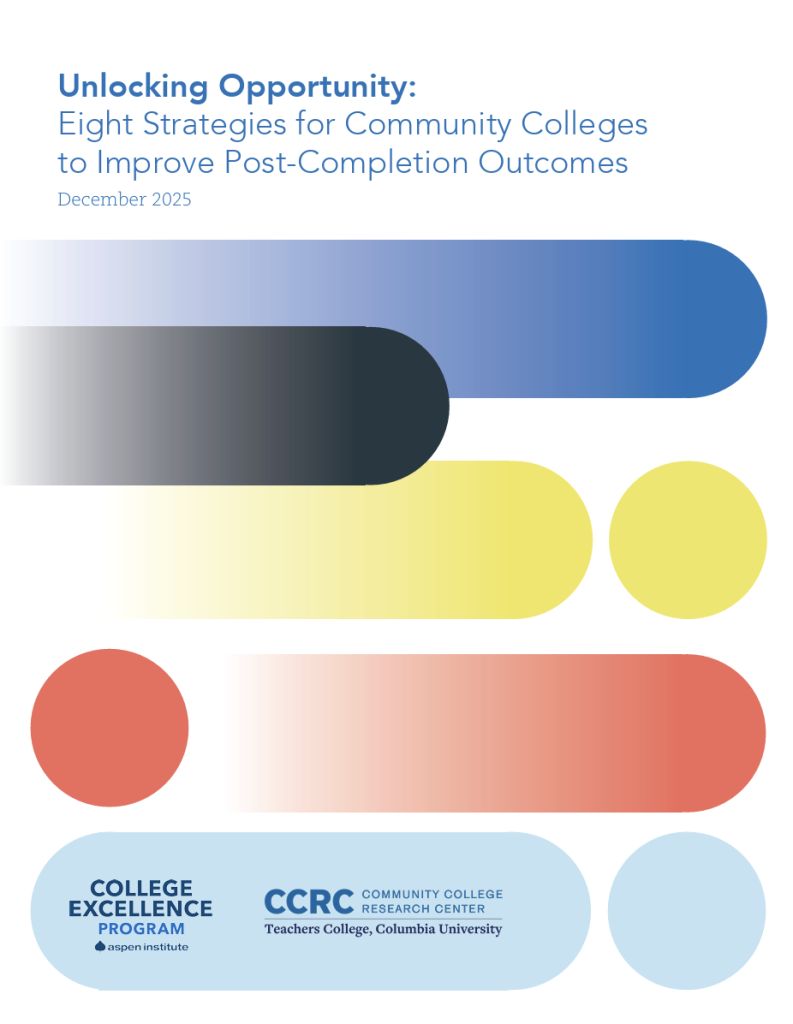
This practice guide builds on the work of colleges in the Unlocking Opportunity Network by offering practical strategies that can help more students graduate with credentials that lead directly to good jobs or transfer and successful attainment of a bachelor’s degree.
